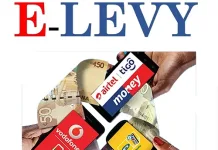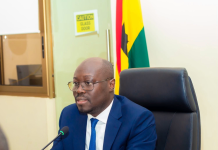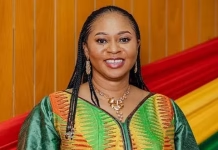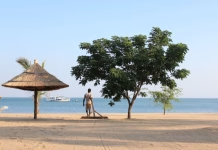
Down memory lane of 1947 through the 50s, the leading pre-independence political slogans were independence in the shortest possible time and independence now. Independence now won and the rest is history. Not to underestimate the wisdom of cautiousness as exhibited by the UGCC leadership, Dr. Kwame Nkrumah’s independence now was driven by the exigencies of self-determination through self-governance. The concomitant realities, challenges and benefits thereafter are for posterity to judge. It resonated with the then voting public and they swayed.
The Akufo-Addo-Bawumia-led NPP may have learned from their political ancestors (i.e. the UGCC whose independence in the shortest possible time fell through) to implement an instantly served wholesale Free SHS policy. It is commonplace that things done hurriedly are often fraught with avoidable mistakes. Unlike Kwame Nkrumah’s “now”, Akufo Addo’s indomie free SHS sought to serve a populist agenda and lacked the advantages of proper systematic planning.
In seeking to shoot down the brilliance of a progressively free education as rebooted by the FCUBE at the beginning of the 4th republic, Dr Bawumia derogatorily described J D Mahama’s progressive infrastructure-led (e-block) free SHS as a Mickey Mouse Free SHS. Fast forward to 2018, in the higgledy-piggledy of an instantly served wholesale free SHS, his emerged as a Traffic Light Free SHS. Thus, we took a stroll from the mickey-mouse shop in the corner to the traffic light at the intersection.
Attempting to implement a free SHS regime with glaring infrastructural deficit and lingering teacher issues is not only naïve bravado, it is a testament of premeditated recklessness. The mickey-mouse era identified infrastructural deficit as an obstacle to a free SHS regime and sought to remedy this with the community day schools (e-blocks). As successive governments have proven to be allergic to continuity, Akufo-Addo chose to initiate a free SHS regime without recourse to boosting infrastructure as started by Mahama. In a similar fashion, the government in 2019 forced a new basic school syllabus (standards-based) without textbooks and without sufficient teacher training on the intricacies of the new syllabus. In a Just Do It manner, teachers were required to teach the new syllabus with half-baked readiness. As of April 2024, Ghana’s education quality ranked 125 out of 183 countries in the latest Global Youth Development Index.
It is important to note that the key yardsticks of the success of social intervention programmes are widespread acceptance, and a shift of burden from the individual to the collective, i.e., government. It is therefore significantly worrisome that the notoriety of this Traffic Light free SHS is of the fact that parents became worse off, and are bearing heavier burdens than in the Mickey Mouse era. The policy objective, as heartwarming as it is, ended up constraining parents, teachers and students alike. Our version of a free SHS has become a one-step-forward, three-step-backward phenomenon. What went wrong?
However much we try to explain, it is undeniable that the realities of infrastructural deficit killed the glitter of the free SHS policy. As an automatic remedial action, we built a huge traffic light (multi-track system) to control the floodgates. Ironically, Ghana began rolling back on shift system in our basic schools back in the late 90s. By 2016, most basic schools in Ghana run morning sessions only. The solution pathway was successive governments’ investment in basic school infrastructural development.
Without proper systemic and capacity planning (i.e., housing, teaching & learning resources, human resources, funding, etc.), the free SHS policy was dead on arrival. It is inevitable that increasing the number of students the way we did will negatively affect the quality of our SHS education when infrastructure remained same. Aside content, continuity and intensity of delivery, necessities such as food and shelter are now worse than in the Mickey Mouse era. In the end, we came undone!
Yesterday’s middle and upper class who clamored to place their children in the best of government high schools across the country now seek to place their children in foreign and international high schools in pursuit of quality education due to this Traffic Light free SHS. That is clearly an ignored policy risk manifesting as policy fiasco.
Finally, it is about time we re-engineered our SHS education to be forward-looking into the future of work. A future-oriented education policy would inform what kind of education we should give our young ones for free. In any case, what is the value of a free SHS education if it has very little bearing on what is relevant for the future of work?
Read Also >>>> Ghana: The Sad Tale Of A Sinking Country – David Zekpah
Strategic foresight in education would reveal that spending taxpayers’ money on a Guggisberg era education is a gargantuan waste of state resources and much ado about absolutely nothing! Thus, beyond free, which is taxpayer-insured, our SHS education conversation needs an upgrade to the level of relevance and continued applicability.
DAVID ZEKPAH
Executive Director,
The 1957 Group









![Kumasi: Fire destroys several shops at Adum market [Photos]](https://betterghanadigest.com/wp-content/uploads/2025/03/adum-market-218x150.avif)










